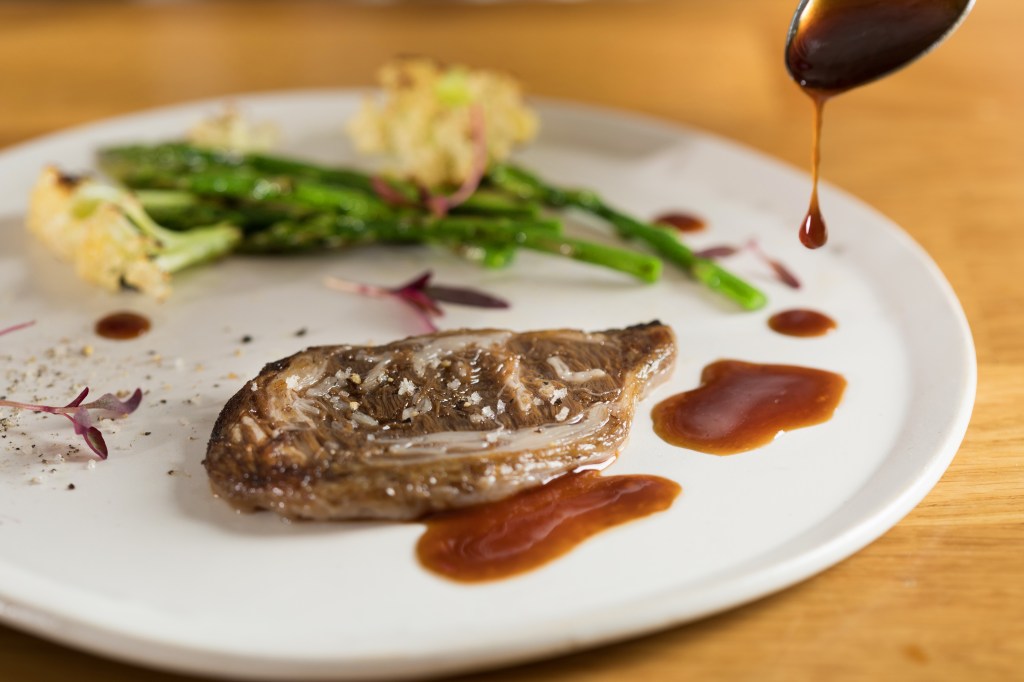Israeli firm Aleph Farms has become the first in the world to receive regulatory approval for a cultivated beef product, making Israel the third country to approve commercial sale of cultivated meat.
The company said in a statement that following a rigorous review process by Israel’s Ministry of Health (MoH), the government agency issued regulatory approval for its Aleph Cuts product in the form of a “No Questions” letter.

Aleph Farms noted how cultivated beef approval could hold the highest environmental impact of all cultivated products, as conventional cattle farming has the largest environmental footprint across all of animal agriculture and many regions are especially reliant on imports for beef. It also said that as beef delivers the highest value in global markets among all animal proteins, it shortens the timeline to price parity with cultivated products.
The company also emphasised the importance of public-private partnerships to moving the industry forward – in April 2022, the Israel Innovation Authority allocated $18 million in government grants to the world’s largest cultivated meat consortium of private companies and research institutions, which included Aleph Farms.
Didier Toubia, CEO and Co-Founder of Aleph Farms: “We believe that addressing joint challenges like food security is the best way to ensure the prosperity of the Middle East and other parts of the world that rely heavily on massive food imports, especially in Asia.
“On behalf of our entire team, I would like to thank the Ministry of Health, the Israel Innovation Authority and all the other involved government agencies for their commitment to advance the first cultivated beef product in the world. Now more than ever, Aleph Farms remains committed to making the world a better place.”

The company claims that its first product to be introduced to diners in Israel — the cultivated Petit Steak — is made of non-modified, non-immortalized cells of a premium Black Angus cow named Lucy, as well as a plant protein matrix made of soy and wheat.
It says that aside from starter cells that come from one of Lucy’s fertilised eggs, there are zero animal-derived components (i.e., no foetal bovine serum) in the cultivation process and the final product, nor are any antibiotics used in production. A controlled and traceable process, including an aseptic production environment, increases transparency and greatly reduces any risk of contamination.
Yifat Gavriel, Chief of Regulatory Affairs, Quality Assurance and Product Safety at Aleph Farms: “Working closely with the Food Risk Management Department at the IMOH…we have ensured full compliance with safety standards and shaped the regulatory landscape for novel foods, opening the door for cellular agriculture to enhance food safety and food security.
“Our regulatory team is working in similar fashion with authorities in numerous markets around the world in order to ensure compliance with respective safety requirements.”
Bruce Friedrich, Founder and President, The Good Food Institute: “This announcement marks a critical leap in the global race to make the meat that people love, in a way that’s better for our climate, biodiversity, and food security. Congratulations to the team at Aleph Farms on becoming the third company in the world to secure regulatory approval for cultivated meat and the first for a cultivated beef product.”
Originally slated to become the third country in the world to certify a cultivated meat product for commercial sale, Australia is expected to approve its first products within this year, with Vow passing the safety inspection phase for its cultivated quail in December 2023.

In a 2023 interview with Future Alternative, Aleph Farms director of market and corporate development, Gary Brenner expressed the company had plans to eventually expand to Australia. He said this was due to the Australian market’s level of sophistication with regards to health, nutrition, alternative proteins, the environment, and sustainability.
To stay up-to-date on the latest industry headlines, sign up to Future Alternative’s enewsletter.
Posted on:


